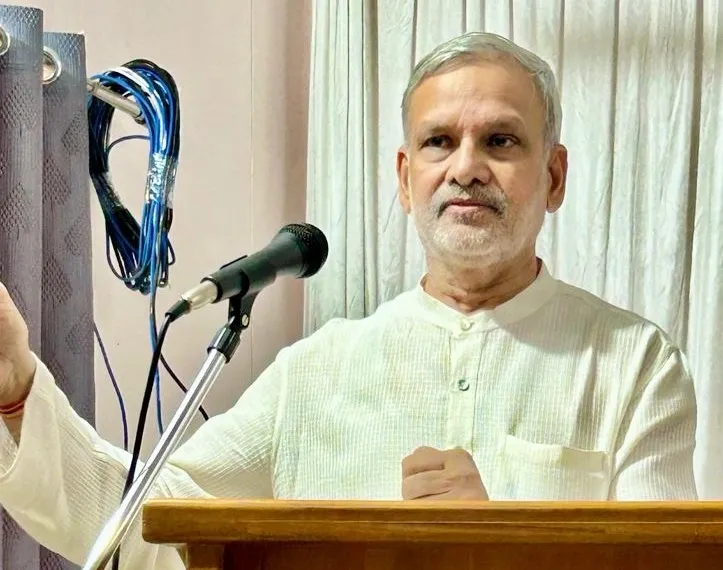Is India’s Vision for Global Growth Really Rooted in Peace and Sustainability?

Synopsis
Key Takeaways
- India’s growth vision emphasizes sustainability.
- Mutual cooperation is key to global prosperity.
- The Blue Economy is vital for development.
- Ancient philosophies guide modern strategies.
- Regional security poses challenges to growth.
New Delhi, May 23 (NationPress) Amidst the swiftly shifting geopolitical landscape of the Indian subcontinent, experts emphasized on Friday that India’s vision for global growth is firmly anchored in sustainability, mutual cooperation, and ocean-based prosperity.
In an interview with IANS during the “MAHASAGAR (Mutual and Holistic Advancement for Security and Growth Across Regions) Initiative” conference, Prof. Chintamani Mahapatra, the Founder and Honorary Chairman of the Kalinga Institute of Indo-Pacific Studies, explained that Prime Minister Narendra Modi’s MAHASAGAR initiative reaches far beyond the Indian Ocean, embodying a vision for a peaceful and prosperous world where all nations sharing oceanic boundaries can thrive together.
“India's global growth vision is deeply rooted in sustainability, mutual cooperation, and oceanic prosperity,” he remarked to IANS.
“India stands for sustainable development and advocates that through international collaboration and reducing conflicts, every nation—regardless of size—should unite to foster global growth,” Prof. Mahapatra asserted.
He pointed out India’s time-honored philosophy of ‘Vasudhaiva Kutumbakam’, which translates to the belief that the entire world is one family, serving as a guiding principle for equitable progress.
“No nation should be left behind,” he stressed.
Highlighting the crucial role of oceans, Prof. Mahapatra stated: “Similar to the fact that 70 percent of the human body consists of water, approximately 70 percent of the Earth’s surface is covered by oceans. This underscores the significance of the Blue Economy.”
He emphasized the necessity of wisely managing maritime resources to foster growth, environmental sustainability, and well-being for all.
Referring to Indian mythology, he compared India’s developmental approach to ‘samudra manthan’—the churning of the ocean—indicating that the country aims to derive both knowledge and wealth from the sea.
“India is committed to harnessing all that Mother Ocean has to offer humanity,” he concluded.
Addressing regional security concerns, Mahapatra voiced worries over terrorism in the Indian subcontinent, particularly Pakistan’s alleged use of it as a state policy.
He also noted China’s backing of Pakistan, which, he argued, often obstructs India’s initiatives on global platforms like the United Nations.










